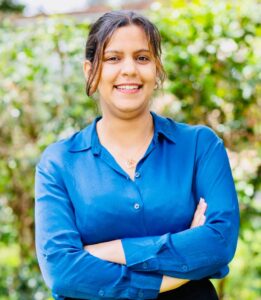Once again, the COP stage highlights a stark reality: women are sidelined from critical decision making processes. At COP29, a pivotal moment for humanity’s future, only 8 out of 78 leaders in attendance are women. This glaring imbalance is especially troubling when we consider that women disproportionately face the impacts of the climate crisis while driving grassroots solutions to combat it.
This exclusion looms large over the central theme of this year’s COP: the New Collective Quantified Goal (NCQG) on climate finance. As negotiations intensify, the NCQG represents a vital opportunity to secure much-needed resources for developing nations. However, without a gender lens, the financial commitments risk exacerbating existing inequalities. The NCQG aims to channel funds toward mitigation, adaptation, and loss and damage, yet the discussions must also ensure these resources address the lived realities of African women, who remain at the heart of these crises.
A key subgoal of the NCQG is mitigation, with a significant focus on phasing out fossil fuels and transitioning to renewable energy. The draft texts of the Mitigation Work Programme (MWP) feature 12 mentions related to fossil fuels, signaling progress in addressing a long overdue issue. Paragraph 37 of the MWP institutionalizes the energy transition as a formal workstream, ensuring its integration into future UNFCCC negotiations. Similarly, countries like Brazil have taken notable steps by incorporating fossil fuel phase-out commitments in their updated Nationally Determined Contributions (NDCs).
Despite these promising signs, glaring gaps remain. While the European Commission’s partnership with the Beyond Oil and Gas Alliance is accelerating energy transition efforts, and the G77 bloc continues to resist weak NCQG proposals, the structural inequities of the climate crisis persist. Women, particularly in Africa, continue to rely on unsafe and fossil fuel-based energy systems, including cooking practices that are both hazardous and unsustainable. This issue took center stage during a high-level side event at COP29, where the Executive Director of the International Energy Agency (IEA) and the Vice President of Tanzania revisited the $2.2 billion clean cooking pledge announced earlier in Paris. While hailed as a milestone, the celebration raised critical questions: Where is the money coming from? How sustainable are its sources? And most importantly, will this funding truly prioritize African women, who disproportionately bear the health and environmental consequences of unsafe cooking practices?
Clean cooking is not just a gender issue—it is a climate and equity imperative. Across Africa, 900 million people still depend on animal and food waste for cooking, with women shouldering the brunt of the resulting health risks, environmental degradation, and lost time. Despite decades of advocacy, progress has been painfully slow, with only a 1.3% improvement in clean cooking access since 2000. Without targeted investments in clean energy infrastructure, financing mechanisms, and affordable technologies, these cycles of inequality will persist.
The NCQG negotiations provide a unique opportunity to break this cycle. By embedding gender-responsive frameworks into financial commitments, the NCQG can ensure that climate finance reaches the women and communities most in need. Transparent mechanisms must prioritize women’s access to clean energy and leadership in energy transitions, while scaling up investments in renewable technologies designed to meet their specific needs.
The finance COP cannot succeed without recognizing that the energy transition is not merely a technical or financial challenge—it is a deeply gendered one. The limited progress in clean cooking, the reliance on fossil fuels, and the exclusion of women from decision-making spaces are all interconnected symptoms of a broader systemic failure.
As COP29 unfolded, there was potential for meaningful progress within the negotiations. Brazil’s ambitious NDC and the institutionalization of energy transition workstreams, meant the groundwork was being laid. However, these efforts didn’t translate in the NCQG text into actionable outcomes that centered women’s realities and ensured that no one is left behind.
For African women, the NCQG represented a chance to secure not just climate finance but also climate justice. The failure of these negotiations to deliver cost not only unmet targets but lives and livelihoods. No deal is better than a bad deal—one that excludes, underfunds, or marginalizes the very people who should be at the heart of these efforts. The time for transformative, inclusive action is now.

Dr. Wafa Misrar is an expert in materials and environmental chemistry, with a strong focus on sustainability. Her research has been widely published in leading international journals, and she regularly shares her insights at global conferences.
Currently serving as the Campaigns and Policy Lead at Climate Action Network (CAN) Africa, Dr. Wafa is a passionate advocate for climate justice across the continent. She works tirelessly to amplify the voices of marginalized communities and drive policy changes for a more sustainable and equitable future.
With her extensive expertise and dedication to environmental preservation, Dr. Wafa continues to inspire action for a greener world.


